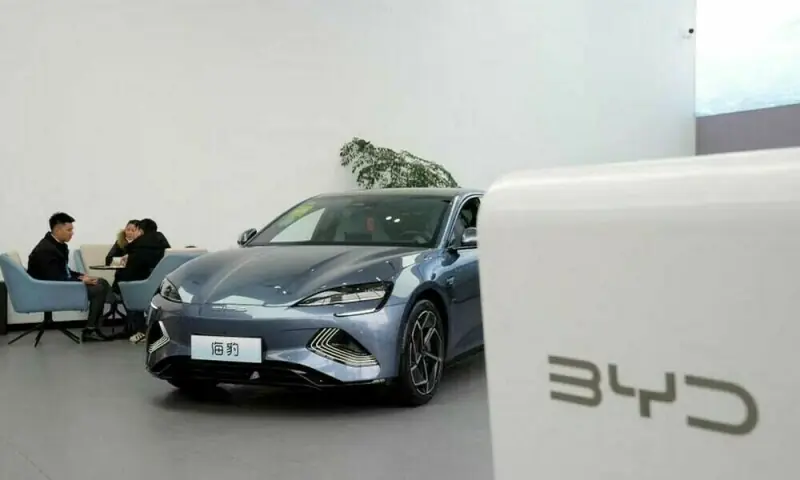Chinese electric vehicle giant BYD has announced its largest vehicle recall to date, affecting more than 115,000 cars due to critical design and battery-related issues. The recall, which includes over 44,000 Tang series plug-in hybrid SUVs and more than 71,000 Yuan Pro electric vehicles, underscores the increasing scrutiny facing EV manufacturers as they rapidly scale production.
The recall affects vehicles produced between 2015 and 2022 and is being carried out voluntarily by the company after internal investigations and regulatory review. It represents a significant moment for BYD, which has experienced tremendous growth both in China and in international markets. However, this incident highlights the growing pains of the electric vehicle industry, especially as manufacturers work to meet soaring global demand while maintaining quality and safety standards.
The first part of the recall targets the Tang series plug-in hybrid SUVs manufactured between March 2015 and July 2017. These vehicles reportedly have a flaw in the design of the drive motor controller. According to the company, this design issue can lead to abnormal discharge of the vehicle’s battery, which may in turn cause excessive heat buildup, potential damage to internal circuit boards, and a failure in the electric driving mode. This defect could result in the vehicle not operating as intended, particularly in its pure-electric functionality.

To address this issue, BYD plans to issue a software update that adjusts how the motor controller discharges electricity. The update will switch the system from an “active discharge” mode to a “motor discharge” method, which is designed to reduce stress on the system and improve safety. The fix will be provided free of charge and installed through authorized BYD service centers.
The second group of affected vehicles includes over 71,000 Yuan Pro electric vehicles manufactured between February 2021 and August 2022. The issue with these models lies in the installation of the sealing gaskets in the battery system. In certain cases, poor sealing or installation could allow water to enter the battery housing when the car drives through water at high speed. This water intrusion could compromise the insulation and safety of the battery pack, potentially resulting in power loss or, in extreme cases, an increased risk of electrical malfunction.
To resolve this, BYD will apply a specialized sealing compound to reinforce the battery pack and prevent moisture from entering. This service will also be carried out free of charge, with owners advised to schedule appointments with local dealerships to complete the repairs.
This mass recall comes at a time when EV safety is under greater scrutiny worldwide. As more consumers transition to electric vehicles, regulators are paying close attention to battery design, water resistance, and thermal management systems—areas critical to the safe operation of EVs. The BYD recall is not an isolated event, but part of a broader pattern in the EV industry where even leading companies face technical setbacks due to the complex nature of battery technology and rapid production scaling.
For BYD, which has positioned itself as a global leader in electric mobility, the recall represents both a reputational risk and an opportunity to reinforce customer trust through transparency and swift action. As of now, there have been no reports of injury or major incidents directly linked to the identified defects, and the company is working proactively to resolve the problems before they escalate.
In previous years, BYD has issued smaller recalls for other models due to various technical issues, but this latest action sets a new record in terms of scale. While mass recalls can carry negative connotations, they are also a sign of a maturing company willing to admit faults and take corrective action. In the competitive EV landscape, long-term brand loyalty is often earned not by avoiding problems entirely, but by how companies respond when problems arise.
This development also raises important questions about how electric vehicle companies can maintain quality control as they rapidly expand manufacturing. With high demand pushing production to its limits, there is a constant tension between innovation, speed, and reliability. The delicate engineering required in battery systems, in particular, leaves little room for error. Even minor design flaws or assembly inconsistencies can lead to serious consequences over time.

Automotive experts note that as the EV market continues to evolve, recalls will likely become more frequent—not necessarily because EVs are less reliable, but because the technology is still relatively young and under intense scrutiny. New materials, novel designs, and software-driven systems introduce variables that traditional internal combustion vehicles did not face.
BYD’s response to this issue will be closely watched by consumers and industry observers alike. A successful recall operation, with clear communication and fast, no-cost fixes, could ultimately strengthen the company’s image. However, any missteps or delays could harm its momentum, particularly in international markets where competition from Tesla, Volkswagen, and other automakers is fierce.
For BYD owners affected by the recall, the company has already begun outreach through its dealer network and is encouraging vehicle inspections to determine eligibility. The fixes, while extensive in number, are relatively straightforward and are not expected to require major overhauls or replacement of battery systems in most cases.
As electric vehicles become more mainstream, safety and transparency will be non-negotiable. BYD’s recall, though a setback, also signals the growing pains of an industry still in transition. How the company navigates this challenge could help set the standard for how EV makers handle quality assurance and customer care in the years to come.











